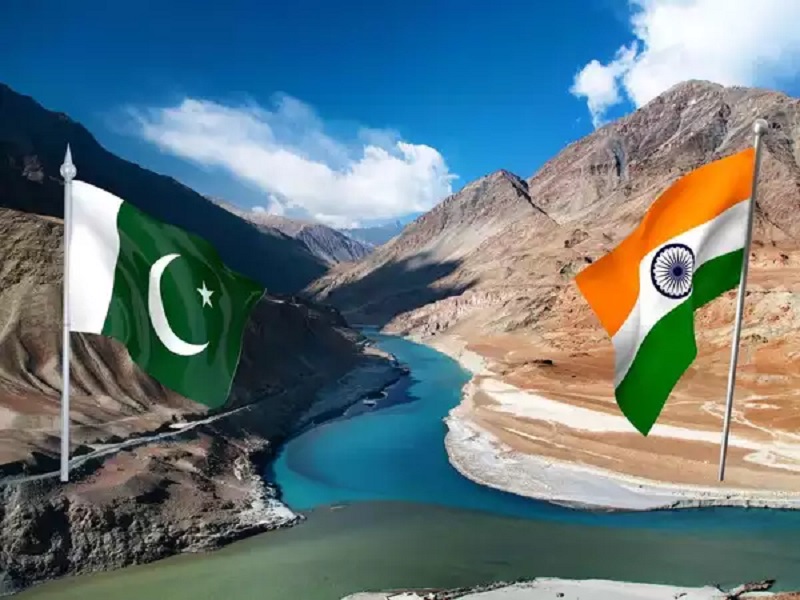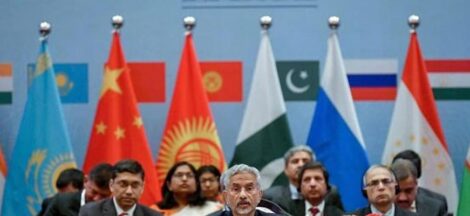Union Jal Shakti Minister C.R. Paatil reaffirmed Delhi’s steadfast position on pausing the Indus Waters Treaty, affirming that any future action “will be in India’s interest”, and confirmed that the Tulbul navigation project on Kashmir’s Wular Lake will be reactivated.
Paatil spoke at a New Delhi press conference, describing the IWT’s suspension as “in the interest of the country.” He emphasised that India will proceed on its own terms while resuming the Tulbul project, including completing a detailed project report before moving ahead.
The suspension stems from the April 22 terror attack in Pahalgam which claimed 26 lives, prompting India to cease its treaty obligations until Pakistan demonstrates an end to cross-border terrorism. The agreement assigns India rights over the Ravi, Beas and Sutlej rivers—about 20% of the Indus system—while Pakistan manages the Indus, Jhelum and Chenab rivers, accounting for the remaining 80%.
Paatil, endorsing Home Minister Amit Shah’s stance that the IWT “will not be restored” until conditions change, said all decisions reflect national interests. He dismissed Pakistani opposition to India’s actions, stating that India “is not afraid” of foreign criticism.
Government insiders revealed that alongside Tulbul, four hydroelectric projects in Jammu & Kashmir on western rivers are gaining momentum. These include the Sawalkot, Kirthai‑II, Dulhasti II, and Uri I Stage II. Short-term efforts also involve flushing and desilting operations in existing reservoirs, which had been hindered under treaty restrictions.
India insists it has not halted water flow to Pakistan; downstream flows persist due to limited local storage capacity, particularly during monsoons, when excess waters inevitably move downstream. However, data-sharing mechanisms and treaty-specific cooperation remain in abeyance.
The Tulbul navigation project, first launched in 1984, envisages a 439 ft barrage and lock system at Wular Lake’s mouth to maintain winter navigability on the Jhelum River. Construction ground to a halt in 1987 after Pakistan objected under the IWT framework. With the treaty suspended, the government is now preparing to study and potentially revive the project.
Jammu & Kashmir Chief Minister Omar Abdullah has publicly supported restarting Tulbul, noting the opportunity this pause offers. He highlighted benefits for regional transport and downstream hydropower—including enhanced generation in Uri and other plants.
Experts caution that despite the treaty pause, India lacks sufficient infrastructure to significantly divert water from the western rivers. Large-scale storage and diversion capabilities remain years away, indicating that immediate effects on cross-border flows may be limited.
Strategically, officials say Delhi’s aim is to optimise its allocation from western rivers and reduce reliance on outdated treaty constraints. Plans under review include diverting waters into Punjab and Haryana channels—though not directly from the Indus—while exploring improved reservoir management.
Paatil also weighed in on bilateral diplomacy, commenting that Pakistan’s request for IWT renegotiation is “not new,” and that Islamabad could continue making demands, but “no action has been taken on it so far.” He added that Islamabad’s water-rights rhetoric, including declarations from Bilawal Bhutto, would not deter India.
The Wular Lake ecosystem itself faces environmental pressures, including seasonal size variation—between 30 and 189 km²—as well as pollution and sedimentation. Reviving Tulbul raises questions on ecological balance and navigation, alongside Kashmir’s development and hydropower targets.




 India’s Solidarity Earns Tehran’s Gratitude
India’s Solidarity Earns Tehran’s Gratitude 